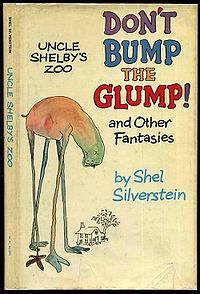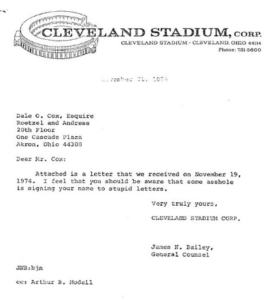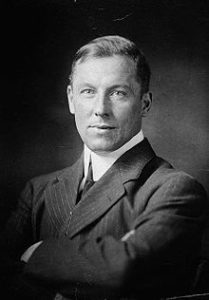Bits and Pieces
Everything You Need to Know About Impressionism in 5 Minutes
Most people that like modern art like Impressionist paintings. I wish that weren’t true. But it is.
Impressionism was an artistic movement that began in the 1860s in Paris. The Impressionists eschewed Realism, which depicted images more or less realistically, in favor of capturing a momentary impression.
Four of the best-known Impressionists were Sisley, Monet, Manet, and Renoir. They liked to paint outdoors, and made a fad of it. They called it painting en plein air.
I’m not a huge fan of Impressionism. When it’s good, it is reasonably good. But most of the time it’s not good. And when it’s not good, it is sentimental, gimmicky, and pandering.
There was, in France at the same time, a development in Modernism that I think is much better. It was Fauvism, led by André Derain.
Of course, the art world doesn’t care what I think. And neither should you. But you should care about knowing some of the basics of this movement if you want to have and voice an opinion on it. Here are a few things to get you started…
* Impasto – By using short, thick brushstrokes, the artist could create a visible 3-dimensional effect on the surface of the canvas.
* Broken Color Technique – It was believed that the artist could create a more vibrant visual effect by mixing colors optically, as the human eye does, rather than by physically blending the paint. It was done by making dots or scratches on the canvas.
* Number: 250 – The number of water lily pond paintings by Monet.
* Year: 1824 – The year Monet painted “Impression, Sunrise,” from which the Impressionist movement was named.
* Quote – “Impressionism: it is the birth of Light in painting.” (Robert Delaunay)
Fitness Trumps Slimness for Health and Longevity
I was happy to hear about a just-released meta-study comparing the health benefits of diet/weight versus exercise/fitness. Fat people, the study concluded, are better off getting fit than losing weight.
Glenn Gaesser, a professor of exercise physiology at Arizona State University in Phoenix, and Siddhartha Angadi, a professor of education and kinesiology at the University of Virginia in Charlottesville, reviewed more than 200 studies (involving tens of thousands of subjects) related to dieting, exercise, fitness, metabolic health, and longevity.
The results, they found, were not even close. “Compared head-to-head, the magnitude of benefit was far greater from improving fitness than from losing weight,” Dr. Gaesser said.
Specifically, their analysis showed that sedentary, obese people that improve their fitness can lower their risk of premature death by as much as 30% or more, even if their weight does not budge. On the other hand, they found that the health benefits of losing weight were inconsistent. Some studies showed that weight loss among obese people does not decrease mortality risks at all. And even those that showed a decrease, showed a decrease of about 16% or half of the results achieved by improving fitness.
Shel Silverstein: Much More Than I Knew
I have always thought of Shel Silverstein as a cartoonist and author of children’s books. So, when I saw this photo of him last week, I was shocked:

Does that look like the face of the beloved creator of Don’t Bump the Glump!

It turns out that Silverstein was much more than a bestselling author of children’s books. He was also an essayist, a poet, a songwriter, and a playwright.
His songs have been recorded by the likes of Johnny Cash and The Irish Rovers. He won 2 Grammys and was nominated for a Golden Globe and an Academy Award.
Silverstein began drawing at age seven by tracing the cartoons of Al Capp. His first published drawings were in a student newspaper at Roosevelt University in Chicago, where he studied English. He spent time in the military, during which his cartoons were published in Pacific Stars and Stripes.
When he left the military, he returned to Chicago to study at the Art Institute, and began to submit cartoons to magazines while also selling hot dogs at Chicago ballparks. His cartoons appeared in Sports Illustrated, Look, and This Week.
He became well known in 1956 when “Take Ten,” the cartoon series he did for Pacific Stars and Stripes, was republished by Ballentine Books as Grab Your Socks! In 1967, his work began appearing regularly in Playboy, which sent him around the world to do an illustrated journal of his travels.
He wrote music and lyrics for Dr. Hook & the Medicine Show. He also composed original music for several films and played guitar, saxophone, piano, and trombone for those compositions. He cowrote Things Change with David Mamet. He also wrote stories for the TV project Free to Be…You and Me.
In an interview with Publisher’s Weekly, Silverstein said:
I think that if you’re a creative person, you should just go about your business, do your work, and not care about how it’s received. I never read reviews because if you believe the good ones, you have to believe the bad ones too. Not that I don’t care about success. I do, but only because it lets me do what I want…. People who say they create only for themselves and don’t care if they are published… I hate to hear talk like that. If it’s good, it’s too good not to share. That’s the way I feel about my work. So, I’ll keep on communicating, but only my way.
Here’s a friendlier photo of him:

He died in Key West in 1999, at the age of 68, from a heart attack.
Interesting Facts About Asia
You’ve never been to Asia? Shame on you. And I bet you didn’t know that Asia is home to…
* The two most populous countries in the world (China and India), with a combined population of 2.8 billion. Third is the USA with a paltry 330 million.
* Four of the world’s nine nuclear powers: China, Pakistan, India, and North Korea.
* The world’s second- and third-largest economies: China and Japan.
* Almost all the largest Muslim countries, including Indonesia, India, Pakistan, Bangladesh, Turkey, and Iran.
A Reader Asks: Is tequila all it’s cracked up to be?
Hello Mark,
I am testing the world of tequila, mainly for where it stands in the area of health when it comes to spirits. I finally realized about 5 years ago that the brown whiskies and beers, even though I liked them quite a bit, hurt me physically. I have since been having only vodka and red wines. I have known that tequila is reasonably good for you when it comes to alcohol, but I never really understood it.
I know you have a taste for tequila, so if you have any suggestions, it would be appreciated.
My reply:
I used to drink rum but it made me irritable. Tequila doesn’t have that effect on me. Also, it doesn’t give me a hangover… no matter how many shots I have on a given night. They say it’s the best for metabolic reasons. I’m not sure about that.
There are three basic types: blanco, reposado, and anejo. Blanco is clear and not aged… reposado is light golden and is aged up to a year… and anejo is golden brown and aged at least a year.
If you are mixing tequila with club soda or fruit juice, blanco is fine. If you want to drink it straight and savor it, the aged tequilas are usually better. You will get some of the variations you get with a good, smooth, aged whiskey.
For a tequila highball (usually made with club soda), I drink Casamigos Reposado. For tasting, my preference is for José Cuervo Reserva de la Familia.
Yes, that’s the same brand that produced rot-gut tequila back in the day. Now they are a big company and can afford to make what I think is one of the world’s best sipping tequilas.
The Benefits of Drinking
Doc Eifrig, a friend and colleague, tells me that a drink or two of any alcoholic beverage has the following benefits:
* It provides high levels of an antioxidant called polyphenols, which lower your risk of heart disease and high cholesterol.
* It gives your immune system a boost.
* It activates the neurotransmitter gamma-aminobutyric acid, which is responsible for memory and nervous system function. This, according to two recent studies, could lower your risk of developing age-related cognitive decline – i.e., dementia or Alzheimer’s disease.
And if your drink of choice is, like mine, tequila, it has the added benefit of being low in calories (80 per ounce).
3 Words I’m Trying to Work Into My Conversations
* cattywampus refers to something that is in disarray, that is askew, or to something that isn’t directly across from something else. For example, a post office might be cattywampus to the library.
* tarradiddle is a petty lie or pretentious nonsense. A great example is that classic fisherman’s tale of “the fish that got away.”
* bumbershoot – a word that you may have heard in many a Disney film – is a humorous slang term for an umbrella.
Worth Quoting
* “The longer I live, the more uninformed I feel. Only the young have an explanation for everything.” – Isabel Allende
* “When failure is reversible, act quickly. When failure is irreversible, think carefully.” – James Clear
* “Money is a singular thing. It ranks with love as man’s greatest source of joy.
And with death as his greatest source of anxiety.” – John Kenneth Galbraith














